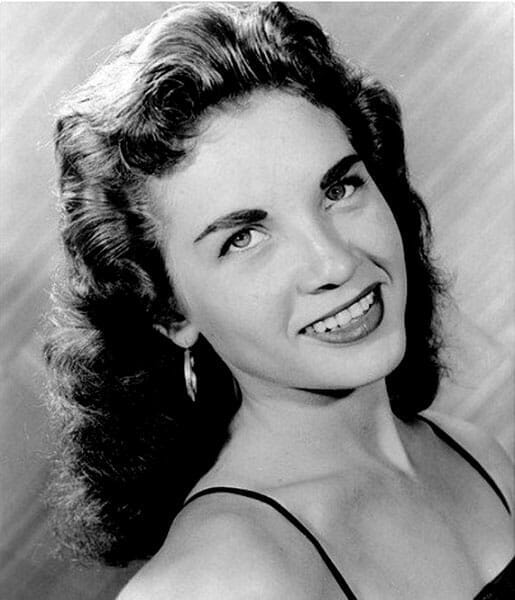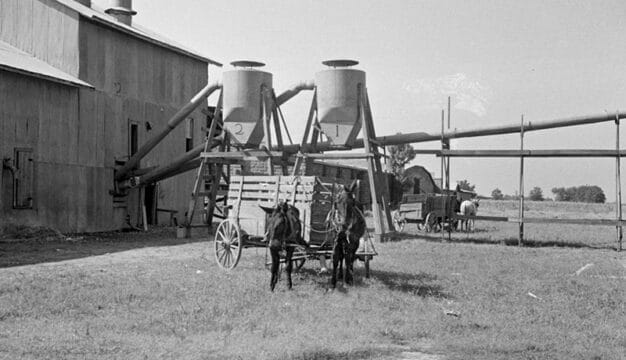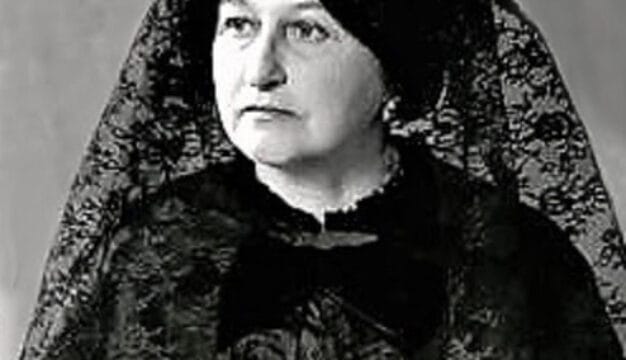Loulie Jean Norman
 Loulie Jean Norman
Loulie Jean Norman (1913-2005) was a studio actress and vocalist whose background roles contributed greatly to many film and television productions from the 1940s to the 1960s and enhanced the performances of other actors. Having a remarkable vocal range, she was best known for singing the theme to the original Star Trek television series and for being the singing voice of Clara in the film version of Porgy and Bess. During her long career, she performed as a back-up singer for such major acts as Frank Sinatra, Henry Mancini, Ray Charles, Dean Martin, Frankie Lane, Bing Crosby, Sam Cooke, and Elvis Presley and made regular appearances on the Dean Martin Show, the Carol Burnett Show, and the Dinah Shore Show. Although Norman was much in demand during her many decades in the entertainment industry, she never became a major Hollywood name or sought fame for herself, preferring a more private life centered on her family and friends.
Loulie Jean Norman
Loulie Jean Norman (1913-2005) was a studio actress and vocalist whose background roles contributed greatly to many film and television productions from the 1940s to the 1960s and enhanced the performances of other actors. Having a remarkable vocal range, she was best known for singing the theme to the original Star Trek television series and for being the singing voice of Clara in the film version of Porgy and Bess. During her long career, she performed as a back-up singer for such major acts as Frank Sinatra, Henry Mancini, Ray Charles, Dean Martin, Frankie Lane, Bing Crosby, Sam Cooke, and Elvis Presley and made regular appearances on the Dean Martin Show, the Carol Burnett Show, and the Dinah Shore Show. Although Norman was much in demand during her many decades in the entertainment industry, she never became a major Hollywood name or sought fame for herself, preferring a more private life centered on her family and friends.
Norman was born on March 12, 1913, in Birmingham, Jefferson County, the daughter of Edward and Rebecca Norman; she had three brothers and a younger sister. As a student at Phillips High School, her high clear soprano voice drew favorable attention in a presentation of Victor Herbert’s operetta Naughty Marietta (1910). At Birmingham-Southern College from 1931 until her graduation in 1933, Norman was active in all its musical organizations, often as an officer. She also formed a quartet called The Blue Shadows, which included future composer Hugh Martin, and staged the musical Of Thee I Sing (1931). During her time in Birmingham, Norman performed in numerous local clubs, on radio shows on WAPI, and in the Birmingham Little Theater.
Around 1936, she moved to New York City, where she became a model and a singer on radio shows. She started her professional career singing with Mel Tormé and his Mel-Tones, an early jazz-influenced vocal ensemble. She married Norman Henry Price, a decorated World War II pilot, sometime in the late 1940s, and the couple would have four children. The family moved to Panama City, Florida, where Price reportedly taught flying to famed actor Clark Gable, and Gable would become a life-long friend of the family and aid in Norman’s return to performing. The Prices soon moved to Los Angeles, and Norman resumed her entertainment career as a studio singer, although on a more limited basis so that she could be home with her family.
Norman’s recording experience was extensive, and as a busy session singer in Hollywood, her impressive vocal range filled a need for many composers and producers. She provided vocal backup for the soundtrack of the Irving Berlin film Easter Parade (1948) and performed as a background singer in Brigadoon (1954) and The Prodigal (1955). Perhaps nowhere is Norman’s remarkable vocal range more evident than her rendition of “Vocalize,” performing as the voice double for Jane Powell in the film Athena (1954). She gained her greatest renown, however, as a voice double for Diahann Carroll in Otto Preminger’s 1959 film adaptation of the George Gershwin opera Porgy and Bess, especially for her rendition of “Summertime.” The film won an Oscar, a Golden Globe, and an Emmy for its soundtrack. She often appeared with comedic orchestra leader Spike Jones and His City Slickers and sang on his studio album The Wonderful World of Hari Kari (1960).
Norman was one of the female singers who accompanied Elvis Presley in the soundtrack session of “Moonlight Swim” from Blue Hawaii (1961), an album that repeatedly occupied the top spot on Billboard magazine’s Top Pop LPs chart. She served as a voice double for Juliet Prowse in another top Presley film, G. I. Blues (1960), and for Stella Stevens in the John Cassavetes film Too Late for Blues (1961). Norman provided the voice accompaniment for “The Princess Waltz” in the 1960 film Cinderfella with comedian Jerry Lewis. There is some debate about whether Norman provided the voice accompaniment for the smash hit “The Lion Sleeps Tonight” (1961) by The Tokens. Family members claim it was Norman, but independent sources recognize New York opera soloist Anita Darian. Both had similar high-pitched soprano voices.
Norman’s most culturally recognizable performance is the haunting vocal track she provided for the theme to the original Star Trek television series that ran from 1966 to 1969. She provided vocal work, usually uncredited, for numerous animated movies, such as the Academy Award-winning Toot, Whistle, Plunk, and Boom (1953), and for the Disney songs “Melody” (1953) and “Country Bear Jamboree” (1972), and she can be heard still as the sound of the eerie ghost at Disney World’s Magic Kingdom. Her performances as one of the original Ray Conniff Singers, whose unique renditions of traditional melodies that brought national acclaim from 1959 to 1971, are her most enduring and unheralded legacy. She sang with various other groups, including the all-female G-6 ensemble and the Ralph Brewster Singers. In 1980, at age 67, Norman sang the soprano solo in “The Future: Sound Without Words” for Frank Sinatra’s album, Trilogy: Past Present Future (Reprise).
Loulie Jean Norman died on August 2, 2005, at her home in Studio City, California, at age 92. By virtue of her personality, clear and flawless voice, and connections, she was one of Hollywood’s most noted vocalists and sopranos, although she never became well known because so much of her work was behind the scenes. A close friendship with former Birmingham-Southern classmate Hugh Martin, who facilitated her career and even composed some of her songs, enabled her to perform in so many productions for so long. Norman was not only widely respected as a mentor for younger singers but for her love of life, family, and friends, which always exceeded her ambition to become a major Hollywood star.
Additional Resources
Crider, Beverly. Legends and Lore of Birmingham and Central Alabama. Charleston, SC: History Press, 2014.
Martin, Hugh. High Martin, The Boy Next Door. Encinitas, CA: Trolley Press, 2010.
“Price, Loulie Jean Norman.” Los Angeles Times, August 14, 2005.



